You walk into Pachamama Paris and the air changes. The scent of spiced rum and grilled plantains drifts through the room. A conga drum hits low and deep, shaking your chest before your ears even catch it. Around you, people are dancing like they’ve been waiting all week-maybe all year-to move like this. No one’s checking their phone. No one’s standing awkwardly by the bar. Everyone’s in it. This isn’t just a club. It’s a party that feels like home, if your home was in Havana, Bogotá, or São Paulo.
What Makes Pachamama Paris So Different?
Pachamama isn’t just another Paris nightclub with a Latin theme. It’s one of the few places in the city where the music doesn’t feel like a playlist. It feels alive. The DJs don’t just play reggaeton or salsa-they live it. Many of them have spent years in the Caribbean or South America, playing underground parties, street festivals, and rooftop raves before bringing that energy to the 10th arrondissement.
The space itself is raw, warm, and unpolished in the best way. Exposed brick, hanging lanterns, murals of Andean goddesses and Afro-Caribbean deities, and wooden benches that double as impromptu dance floors. There’s no VIP section with velvet ropes. No bouncers shoving people around. Just a crowd that’s here for the rhythm, not the status.
It’s the kind of place where you’ll end up dancing with someone who speaks only Spanish, but you both know the steps to ‘Vivir Mi Vida’ by heart. Where a stranger hands you a shot of aguardiente without saying a word, just smiles, and points to the dance floor.
Why Latin Nights in Paris Matter
Paris has dozens of clubs. But how many of them make you feel like you’ve stepped into another culture-not just listened to it on Spotify? Pachamama doesn’t serve Latin vibes as a gimmick. It’s rooted in community. The staff are often bilingual, many are from Colombia, Peru, or the Dominican Republic. The bartenders know the difference between a proper mojito and a tourist version with syrup instead of fresh mint.
For locals, it’s a rare escape from the usual indie-electro or techno scenes. For tourists, it’s the most authentic Latin experience you can get without a flight to Medellín. And for expats? It’s a lifeline. A place where they don’t have to explain their culture-they just live it.
What Nights to Expect
Pachamama doesn’t do the same thing every night. Each week has its own flavor:
- Thursday: Salsa & Son - Live band nights. You’ll hear trumpets, timbales, and tres guitars. This is where the serious dancers show up-women in flowing skirts, men in crisp shirts, moving like they’ve been doing this since they were kids.
- Friday: Reggaeton Takeover - The bass drops hard. Everyone’s in motion. Expect the latest hits from Bad Bunny, Karol G, and Feid. The dance floor gets packed by 11 PM. If you’re not sweating by midnight, you’re not trying.
- Saturday: Afro-Latin Fusion - This is where Pachamama shines brightest. Think cumbia mixed with Afrobeat, champeta with dembow. The DJ spins from vinyl records and laptops, blending old-school classics with new street anthems.
- Sunday: Mambo & Chill - A slower, sunnier vibe. Think Cuban jazz, boleros, and acoustic guitar. Perfect if you want to sip a cold chicha morada and watch the sunset through the open windows.
There’s no cover charge before 10 PM on weekdays. Weekends? Usually €10-15, but it’s worth it. You’re not paying for a bottle service experience-you’re paying for a night that sticks with you.
What to Wear (And What Not To)
There’s no dress code. But there’s an unspoken rule: come ready to move.
- Wear shoes you can dance in-no stilettos on the wooden floor. Flat sandals, sneakers, or even barefoot if you’re bold.
- Light fabrics. It gets hot. Cotton, linen, breathable synthetics. No heavy coats or wool.
- Don’t overdo it. No neon tracksuits, no fake gold chains, no ‘tourist in Cancún’ outfits. Keep it cool, casual, confident.
- Women: Flowy dresses or high-waisted pants with a crop top. Men: Shorts or slim jeans with a tucked-in shirt. Simple works.
People notice how you move, not what you’re wearing. The best-dressed person in the room? The one who’s laughing, sweating, and dancing like no one’s watching-even though everyone is.
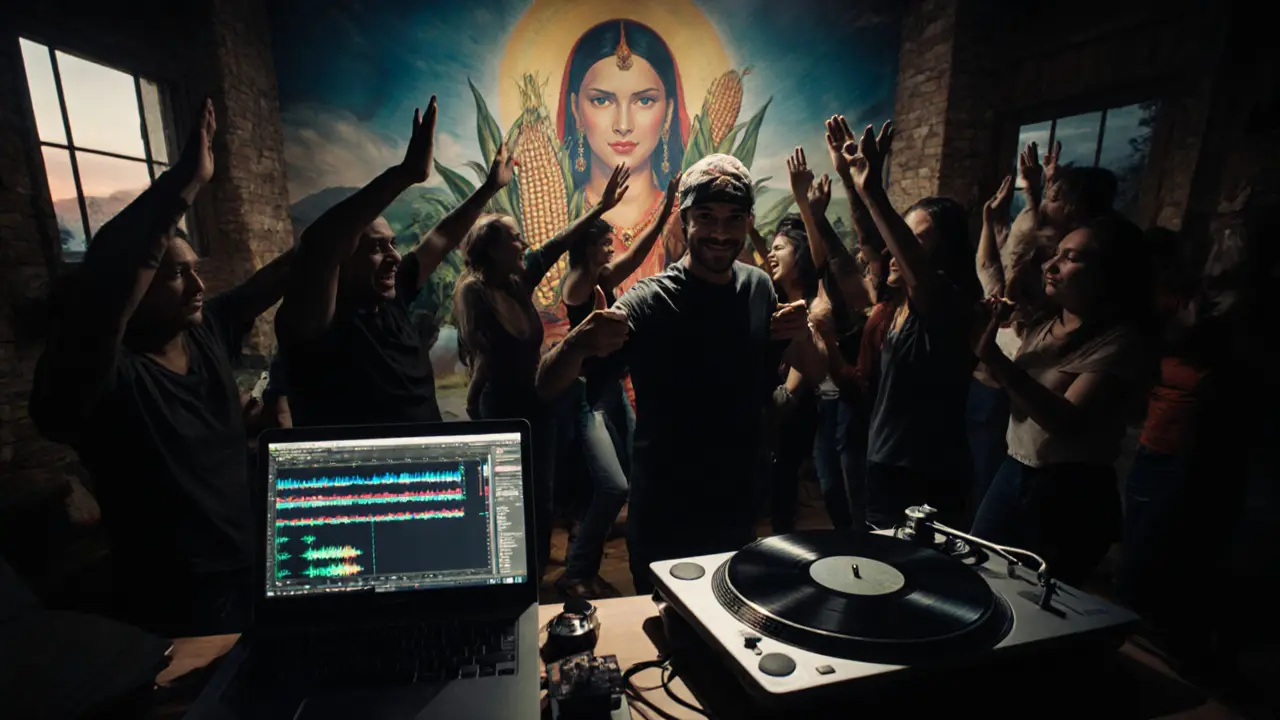
How to Find Pachamama Paris
It’s tucked away in the 10th arrondissement, near the Canal Saint-Martin. Not in the tourist zone. Not near the Eiffel Tower. That’s the point.
Address: 10 Rue du Faubourg du Temple, 75010 Paris
Nearest metro: Parmentier (Line 3) or Jacques Bonsergent (Line 3). It’s a 5-minute walk. If you’re coming from Gare du Nord or Gare de l’Est, it’s a 15-minute ride.
Don’t rely on Google Maps alone. The entrance is unmarked. Look for a small wooden door with a faded mural of a woman holding a corn husk-Pachamama, the Andean earth mother. There’s no sign. Just a faint thump of music coming from inside. That’s the one.
What to Order
The drinks are simple, strong, and made with care.
- Chicha Morada - A sweet, purple drink made from purple corn, pineapple, and cinnamon. Non-alcoholic, refreshing, and perfect if you’re pacing yourself.
- Caipirinha - Brazilian-style, made with cachaça, lime, and sugar. No pre-made syrup here. Fresh lime, crushed by hand.
- Mojo de Ajo - A house special: white rum, garlic-infused honey, lime, and a pinch of chili. Sounds weird? Try it once. You’ll understand why it’s their bestseller.
- Agua de Panela - A warm, unrefined cane sugar drink served with a splash of lime. Great after midnight if you need to slow down.
Food is limited-small plates only. But the arepas? Perfect. Crispy outside, soft inside, stuffed with black beans and melted queso fresco. Grab one before the dance floor gets too packed.
What to Expect When You Walk In
You’ll feel it before you see it-the pulse. The bass isn’t just loud; it’s physical. You feel it in your ribs. Your feet tap before your brain catches up.
At first, it might feel overwhelming. The lights are low, the music is loud, the crowd is close. But within minutes, you’ll find your rhythm. Someone will pull you into a circle dance. Someone will hand you a napkin because you’re sweating. Someone will laugh at your moves and then teach you the right step.
There’s no stage. No DJ booth with a glass wall. The DJ stands right next to the crowd, nodding, smiling, reading the room. They’ll drop a classic like ‘Candela’ and wait for the whole room to scream before moving on.
It’s not a club where you go to be seen. It’s a club where you go to be felt.

Pachamama vs. Other Latin Clubs in Paris
| Feature | Pachamama Paris | La Clandestine | El Bandido |
|---|---|---|---|
| Music Authenticity | Live musicians, vinyl, regional styles | Pre-made playlists, mostly reggaeton | Electronic remixes of Latin hits |
| Dance Floor Vibe | Community-driven, inclusive | More crowded, less personal | Party-focused, less cultural |
| Staff Background | Most are Latin American expats | French staff with minimal cultural ties | International staff, mixed experience |
| Price per Drink | €9-12 | €14-18 | €12-16 |
| Best For | Authentic experience, cultural immersion | Big crowds, weekend parties | Younger crowd, loud bass |
Pachamama doesn’t compete with the others. It redefines what a Latin night should be.
Frequently Asked Questions
Is Pachamama Paris only for Latin people?
No. Everyone is welcome. You don’t need to speak Spanish, know how to salsa, or have roots in Latin America. What you do need is an open mind and a willingness to move. The energy here isn’t about heritage-it’s about connection. You’ll find locals, tourists, expats, students, and retirees all dancing together.
Do I need to book in advance?
Not usually. Walk-ins are welcome, especially on Thursdays and Sundays. But for Friday and Saturday nights, especially during summer or holidays, it’s smart to arrive by 9:30 PM. Lines form quickly, and once the room hits capacity, they stop letting people in. No reservations, no VIP lists-just first come, first served.
Is it safe to go alone?
Yes. Pachamama has a strong reputation for being one of the safest and most respectful spaces in Paris nightlife. The staff are trained to intervene if someone feels uncomfortable. There’s zero tolerance for harassment. Many solo visitors-especially women-say it’s the only club in Paris where they feel truly free to dance without being stared at or touched.
What time does it end?
Most nights, the music stops around 2 AM. But on weekends, the DJ often keeps playing quietly until 3 AM if the crowd is still dancing. The doors close by 3:30 AM. The last train from Parmentier runs at 1:30 AM, so plan ahead. Taxis are easy to find, but rideshares like Uber can be expensive late at night.
Can I bring my own drinks?
No. Outside alcohol isn’t allowed. But you don’t need it. The drinks are cheap, well-made, and part of the experience. Bring cash for the bar-cards aren’t always accepted, especially on busy nights.
Ready to Feel the Beat?
Pachamama Paris isn’t just a place you go to. It’s a place that changes you. You leave sweaty, tired, maybe a little dizzy from the music. But also lighter. Happier. Like you remembered how to move without thinking.
If you’ve ever wanted to feel what real Latin nightlife feels like-without flying to Cartagena or Mexico City-this is it. No filters. No gimmicks. Just rhythm, community, and a whole lot of heart.
Next Friday? Go. Wear your dancing shoes. Say yes to the shot. Let go. The drum is waiting.

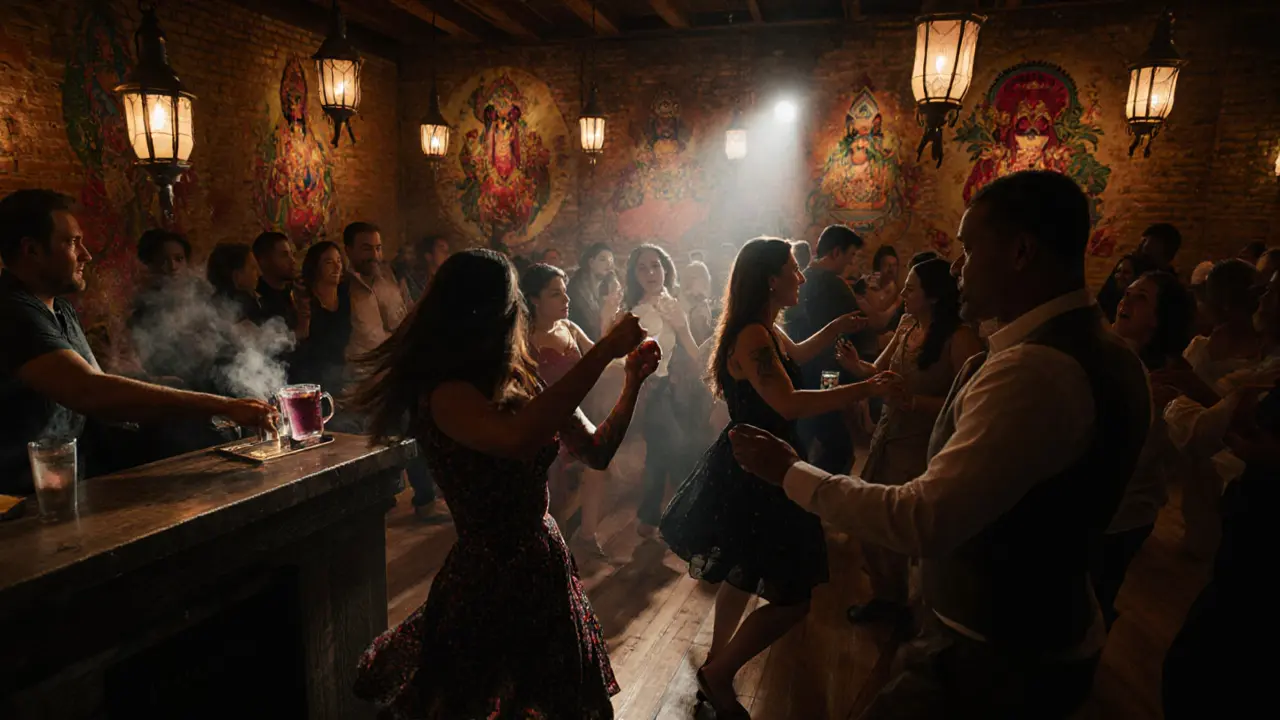
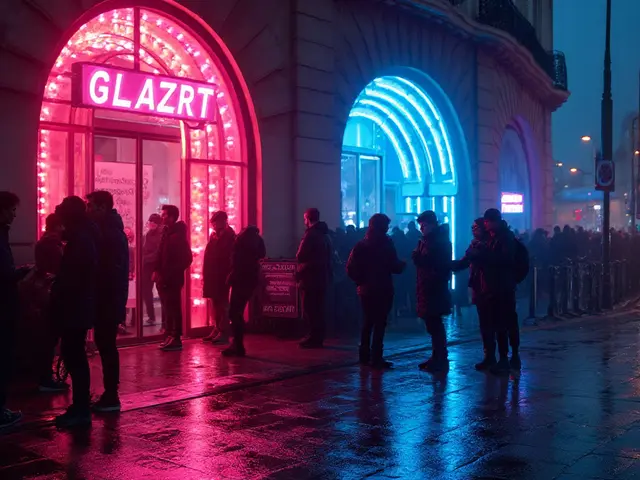
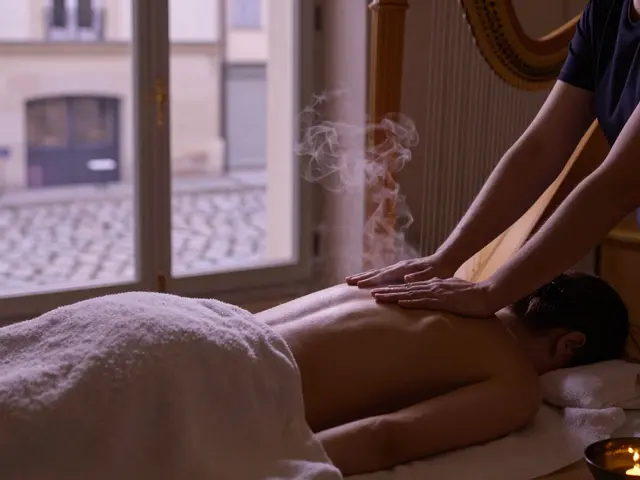
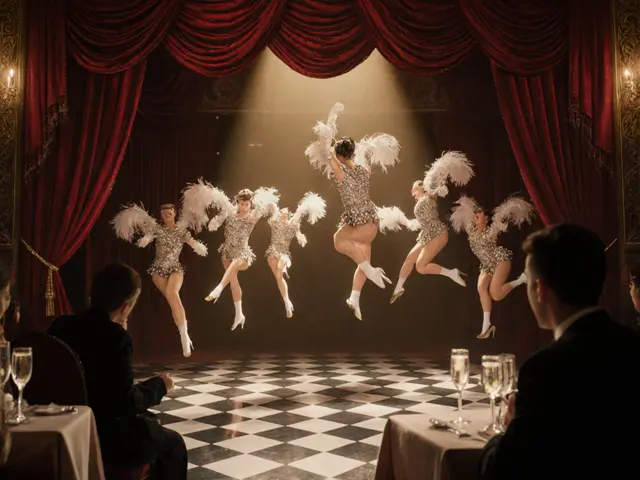
Tejas Kalsait
November 2, 2025 AT 20:00Pachamama is less a venue and more a phenomenological rupture in the urban fabric of Paris-a liminal space where corporeal rhythm overrides linguistic barriers. The DJ isn't merely curating tracks; they're conducting a collective somatic ritual rooted in diasporic epistemologies of movement. The absence of VIP culture isn't aesthetic-it's ontological resistance to capitalist commodification of affect.
The arepas? A microcosm of decolonized gastronomy. No corporate branding, no fusion pretense. Just corn, fire, and ancestral memory.
Emily Martin
November 4, 2025 AT 16:16This is the most thoughtful, well-written guide to a nightclub I've ever read. Every detail feels intentional-from the mention of chicha morada to the note about not relying on Google Maps. The way you describe the music as 'physical' is exactly how it feels. I’ve been to dozens of clubs in Paris, and this sounds like the only one that truly honors the culture behind the beats.
mahesh moravaneni
November 5, 2025 AT 16:54John Galt
November 6, 2025 AT 15:16The structural integrity of Pachamama's cultural architecture is remarkable. Unlike commodified nightlife ecosystems that tokenize Latin aesthetics through algorithmic playlists and performative diversity, Pachamama operationalizes cultural authenticity via embodied labor-the DJs' lived experience, the staff's linguistic fluency, the spatial design that rejects hierarchical patronage. This is not entertainment; it's ethnographic preservation through kinetic practice.
The absence of card payments? A deliberate anti-consumerist signal. Cash-only enforces temporal and economic boundaries that protect the integrity of the experience from neoliberal encroachment.
Gail Maceren
November 7, 2025 AT 12:18I went last month and just… stayed until closing. Didn’t know a single person there. Didn’t need to. Someone handed me a napkin when I was dripping sweat, then pulled me into a circle dance. I cried a little. Not because I was drunk-because I felt seen. For the first time in years, I didn’t feel like an outsider in a city full of people.
Also, the mojo de ajo? Worth the weirdness. 10/10.
AMock Media
November 8, 2025 AT 03:18Let’s be honest-this isn’t about culture. It’s about performative exoticism disguised as authenticity. Who funds this place? Who owns the building? Are the 'Latin American expats' on staff actually the owners, or are they just wage laborers in a gentrified fantasy? The mural of Pachamama? Probably licensed from a stock image. The 'no VIP section'? A marketing tactic to attract the woke tourist demographic.
And don’t get me started on the 'no dress code'-that’s just a way to attract the kind of people who think 'casual' means ripped jeans and tank tops. Real Parisians still wear coats. Real culture has boundaries.
Rahul Verma
November 8, 2025 AT 11:32Been to Pachamama twice. First time was scary-felt like I didn’t belong. Second time? I brought my cousin from Delhi. We danced with a guy from Bogotá who didn’t speak English. We didn’t need to. The music was the language. I’ll go back every time I’m in Paris. It’s the only place I’ve ever felt like I was part of something bigger than myself.
Also, the chicha morada is life.
Jennifer Kettlewell
November 10, 2025 AT 05:36Did you know the Andean goddess murals were painted by a company contracted by a French real estate firm? This is cultural appropriation wrapped in virtue signaling. The 'authentic' DJs? Half of them are French kids who watched YouTube tutorials. The 'no cover before 10' is a trap to lure in drunk tourists who then get overcharged at midnight. And the 'safe space' claim? I’ve seen men press against women in the crowd and no one says a word. It’s not safe-it’s silent complicity.
Also, the arepas? Made with frozen masa. I checked the packaging behind the bar.
Karinne Davidson
November 10, 2025 AT 19:05Just went last night. So good. 😭 I danced with this sweet older lady who taught me the steps to a Cuban son. We didn’t say a word. Just smiled. The music was so loud I could feel it in my teeth. I’m going back next week. Bring snacks. And wear comfy shoes. 🙏
GAURAV JADHAV
November 12, 2025 AT 13:45